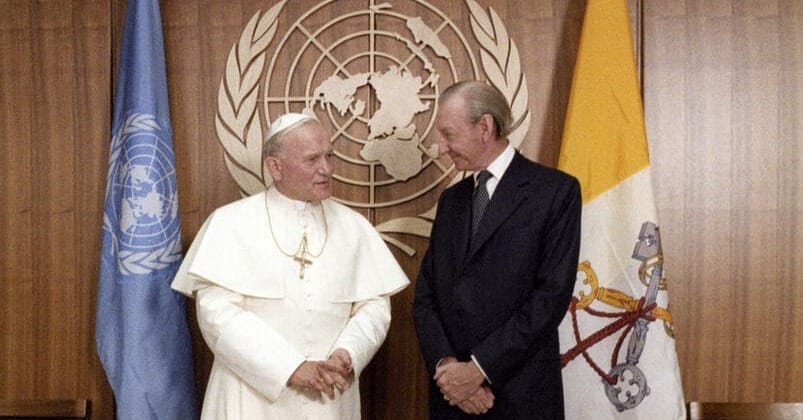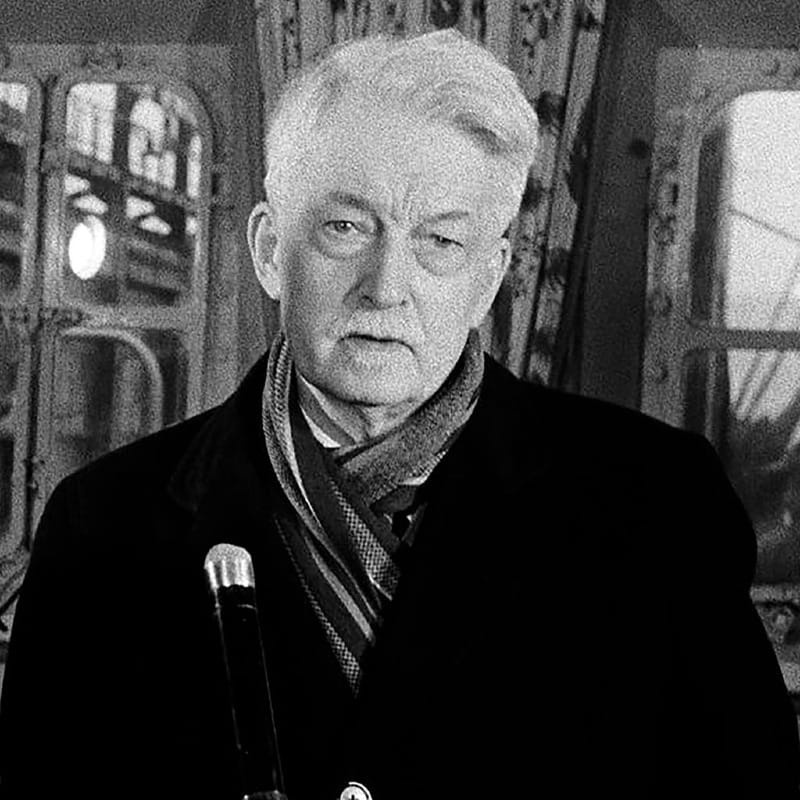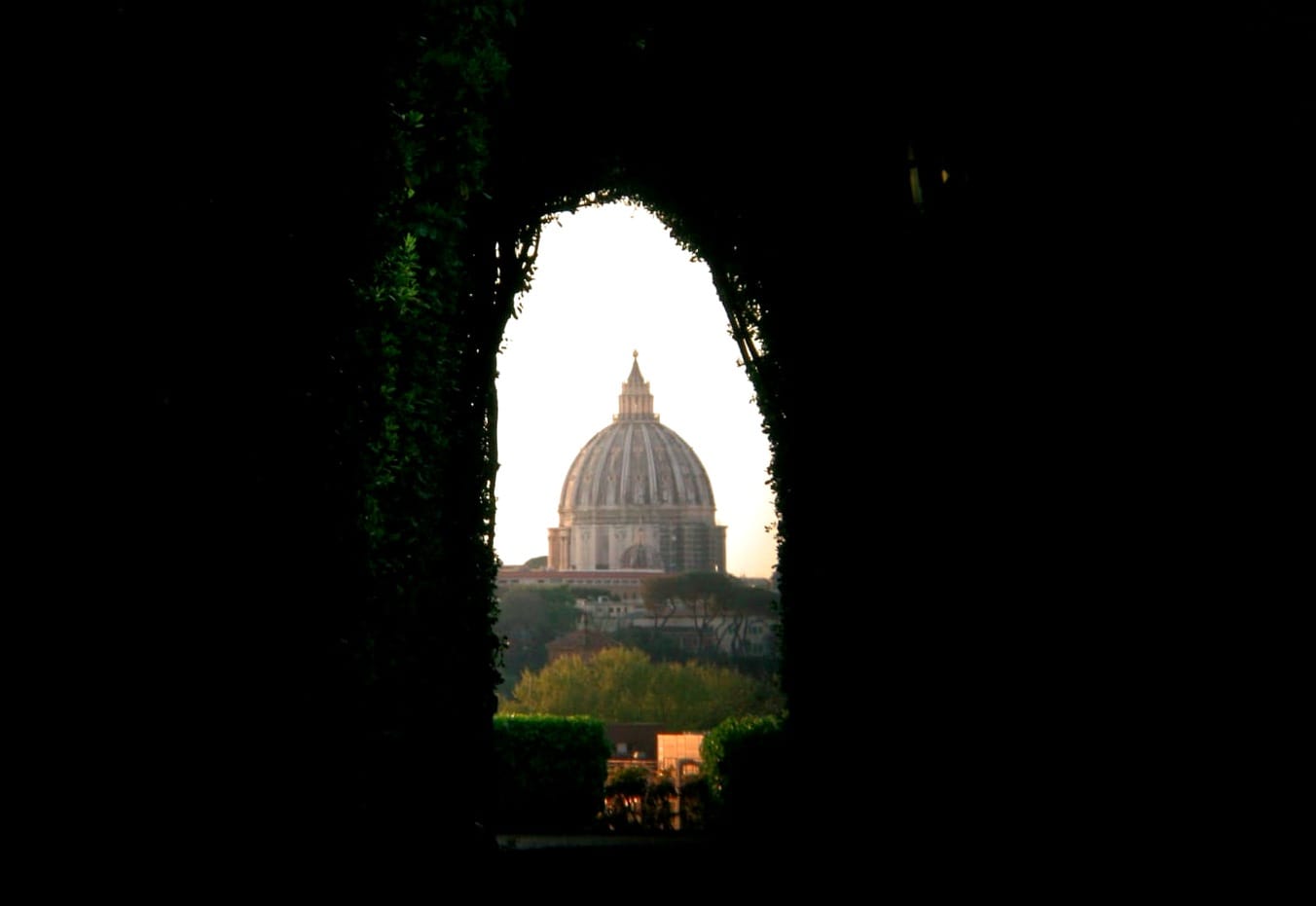Catholicism and Pluralism: Liberty at the Service of Truth
Catholic teaching defends conscience not as relativism but as liberty’s foundation: truth can only be embraced freely. Liberty makes room for truth; truth gives liberty its purpose.

Why the Church’s Defense of Conscience is the Surest Ally of a Free Society—Without Yielding a Claim About Truth
Introduction: Why Conscience Matters for Freedom
Why return to the question of conscience and freedom today? Because the link between them—so central to Catholic teaching since the Second Vatican Council—remains contested and misunderstood. In politics, religious liberty is often reduced to a slogan; in culture, pluralism is mistaken for relativism. Both distortions miss the point.
The Church’s defense of conscience is not a concession to modernity. It is a recovery of her own deepest truth about the human person: rational, free, and capable of embracing truth only in freedom. From Dignitatis Humanae (1965) to John Paul II’s address at the United Nations in 1995, the message has been consistent: conscience is the first freedom, the interior sanctuary where truth may be received. When John Paul II called religious freedom “the cornerstone of the structure of human rights,” he was stating a principle at the heart of Catholic anthropology: truth cannot be forced.
Dignitatis Humanae: Religious Freedom as a Human Right
The Church’s embrace of religious liberty arose not from outside pressure but from a retrieval of her own tradition, made explicit at the Second Vatican Council and developed further by thinkers such as Jacques Maritain and John Courtney Murray.
In Dignitatis Humanae, the Council declared simply: “The human person has a right to religious freedom,” understood as immunity from constraint in matters of faith. This was not a pragmatic bargain with modernity but a conclusion rooted in human dignity.
The declaration went further: “The truth cannot impose itself except by virtue of its own truth, as it makes its entrance into the mind at once quietly and with power.” A faith demanded by the state is no faith at all; a creed professed under threat is only noise. Genuine assent to truth unfolds in conscience—a space no authority can invade.
John Courtney Murray: The Constitutional Grammar
Two Catholic thinkers helped give political voice to this theology. The first was the American Jesuit John Courtney Murray, who lived through Europe’s devastation at the hands of regimes that sought to control religion and, by contrast, saw the United States endure by restraining the state from such pretensions.
In We Hold These Truths (1960), Murray described the First Amendment’s religious settlement as “not articles of faith but articles of peace.” The American state, he argued, is “not a judge of religious belief and action.” Its competence is juridical, not theological. To renounce the temptation to decide ultimate questions is not an act of agnosticism, but a reminder of what government is for: to secure public order and justice, not to arbitrate salvation.
Murray rejected the illusion that civic unity requires enforced conformity of belief. Far from it: the peace once sought by compulsion could be more securely achieved through free persons who associate, persuade, and worship without coercion. For him, the Gospel is always “proposed, never imposed”—and it flourishes when the state knows its limits.
Jacques Maritain: The Metaphysical Lexicon
If Murray gave Catholic political thought its constitutional grammar, Jacques Maritain, the French Thomist philosopher, supplied the metaphysical lexicon. Writing in Man and the State (1951), Maritain declared: “The state is for man, not man for the state.” The line, now almost a cliché, was radical in its time.
For Maritain, the person carries a destiny that transcends politics; therefore, political authority is inherently limited. He spoke of “organic multiplicity”—by which he meant the network of families, parishes, schools, unions, and associations that stand between the isolated individual and the central state. These intermediate bodies both protect the person and form him in the common good.
Jacques Maritain saw that modern societies could not agree on ultimate truths—about God, human nature, or the meaning of life. But he also saw that they could still act together morally. As he quipped during the debates that shaped the Universal Declaration of Human Rights: “We agree about the rights, provided no one asks us why.” The point was not to deny the “why”—he believed metaphysical convictions mattered profoundly—but to keep governments from pretending they could settle such questions by force. What mattered for political life was a practical consensus: Protestants, Catholics, secular liberals, and socialists might justify rights differently, yet they could still defend the same freedoms. For Maritain, this was the secret of pluralism: build common action on shared rights, while leaving ultimate justifications to conscience, not the state.

Nostra Aetate: Confidence in Diversity
The Second Vatican Council’s declaration Nostra Aetate (1965) carried into the modern world a striking confidence: the conviction that truth is not diminished by diversity. It affirmed that the Catholic Church “rejects nothing that is true and holy” in other religions. This was not polite diplomacy but a metaphysical claim. If reality is one, then glimpses of truth will be found beyond the Church’s visible boundaries—in Hindu devotion, Buddhist meditation, Jewish fidelity, or Muslim reverence for God’s majesty. Recognizing those fragments does not weaken Catholic faith; it expresses its confidence that all truth is God’s truth.
Dialogue, then, is not capitulation but witness: meeting others without fear, convinced that what is genuinely true in their traditions ultimately harmonizes with the fullness of truth in Christ. Later, Benedict XVI would stress that this openness rests on the transcendent dignity of the human person. To honor conscience—the “aboriginal Vicar of Christ,” as Newman put it—is to acknowledge that genuine faith can only be embraced freely. Coercing conscience wounds not only the citizen but the sacred core where freedom and truth meet.
Liberty Without Relativism
Some fear that pluralism means treating truth as mere civility, a polite truce with no real convictions. That danger arises only if liberty is mistaken for an end in itself—rather than for what it is: the necessary condition that makes genuine assent to truth possible.
The Church does not imagine the public square as a “neutral void” policed by value-free arbiters. Political authority, in her view, has a definite but limited task: to secure peace ordered to the common good. Beyond that lies what cannot be commanded—the interior freedom where persons search for and respond to truth.
At the same time, the Church does not expect citizens to mute their convictions. The neutrality demanded of the state is juridical, not metaphysical. Government refrains from ruling on questions beyond its scope; society remains alive with teaching, argument, persuasion, and testimony. Pluralism is not the abandonment of judgment. It is the refusal to enforce judgment by coercion.
Liberty and Truth as Allies
The Catholic defense of conscience is not tactical. It is not a plea for tolerance until numbers or power tip the scale. It is both an act of charity and of reason: persons are made for truth, and truth persuades by its own light. “The Church proposes; she imposes nothing,” John Paul II insisted. “She respects individuals and cultures, and she honors the sanctuary of conscience.” (Redemptoris Missio, 1990).
When John Paul II called religious freedom “the foundation and guarantee of all freedoms” (Message for the World Day of Peace, 1988), he was drawing a straight line from Christian anthropology to political order. A society that protects conscience creates room for conversion, disagreement, and searching—for the possibility of truth to be received. A society that presumes to command the soul, whether by legal sanction or cultural intimidation, hollows out the person and with it the common good.
The irony is that such restraint does not weaken conviction but makes bolder speech possible. Catholics in a pluralist order need not whisper. They can speak openly because they know truth is not advanced by coercion but by witness. “The freedom to profess one’s religion in private and in public,” John Paul II said, “is at once the measure of the state’s respect for human rights and the mark of authentic civilization” (Centesimus Annus, 1991).
Here liberty and truth reveal themselves as allies. Liberty provides the space in which truth may be sought, spoken, and embraced; truth gives liberty its direction, saving it from dissolving into mere choice. As John Courtney Murray’s constitutional sobriety and Jacques Maritain’s luminous personalism converge, the balance is clear: the state secures peace and justice within history; the Church tends to souls for eternity. When each remains within its proper competence, conscience is safeguarded, and freedom serves—not undermines—the search for truth.
The Reminder for Our Age: Conscience as the First Freedom
We live in an age of renewed temptations. On one side lies the drive to sacralize political power, draping nationalism in religious vestments. On the other, the opposite urge: to dissolve conviction into mood, reducing belief to the shifting currents of sentiment.
The Catholic response is neither to consecrate politics nor to trivialize faith. It is to recall that the person precedes the state, that conscience cannot be conscripted, and that truth, when received, enters quietly but with power—persuading, never coercing.
To defend conscience, then, is not to yield to relativism. It is to recognize a deeper reality: that freedom of the soul is the first condition of any authentic common good. A state that honors this freedom makes room for witness, conversion, and disagreement; a state that presumes to command the soul hollows out both person and polity.
Here liberty and truth stand as allies. Liberty provides the space for truth to be sought and embraced; truth gives liberty its purpose, protecting it from dissolving into mere choice. When the state remains within its limits and the Church within hers, conscience is safeguarded—and in that sanctuary, freedom and faith together sustain a civilization worthy of the human person.
As John Paul II reminded the United Nations:
“Freedom of conscience and of religion is the most fundamental of human rights, because it touches the very core of the human person. … The truth cannot impose itself except by virtue of its own truth, as it makes its entrance into the mind at once quietly and with power.” (UN Address, 1995)






